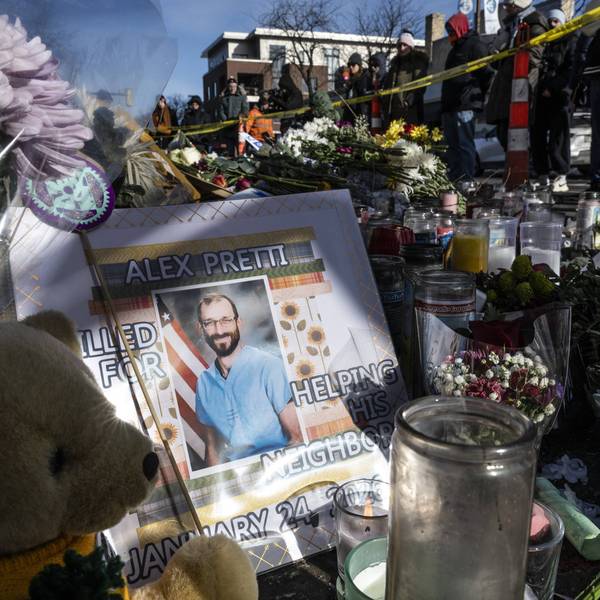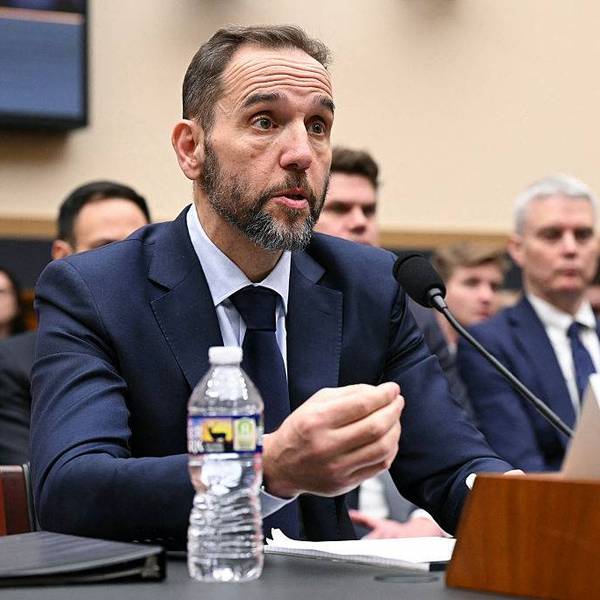U.S. President Donald Trump began his second term with a blitz of clemency actions, including issuing pardons and commutations for over 1,500 rioters convicted in connection to the January 6 insurrection at the Capitol and pardoning Silk Road founder Ross Ulbricht, and now the president's "moves to expand the use of pardons have white-collar defendants jolting to attention," according to Tuesday reporting from Politico.
Those reportedly angling for clemency include individuals like jailed crypto titan Sam Bankman-Fried, former Sen. Bob Menendez (D-N.J.) who earlier this year was sentenced to 11 years in prison for corruption and bribery, two reality TV stars guilty of defrauding banks and evading taxes, and a member of the music group the Fugees who was convicted for taking part in an embezzlement scheme.
Sam Mangel, a consultant to people convicted of white-collar crime who has advised individuals like Bankman-Fried, told Politico that "everybody that is in prison now is keenly aware of the environment, and it's become a very hot topic within the low- and minimum-security inmate communities."
According to The New York Times, "The new administration has a team of appointees focusing on the process early in Mr. Trump's term, with a particular focus on clemency grants that underscore the president's own grievances about what he sees as the political weaponization of the justice system."
Accordingly, clemency petitioners are "tailoring their pitches to the president by emphasizing their loyalty to him and echoing his claims of political persecution," per the Times.
For example, a lawyer representing conservative reality TV stars Todd and Julie Chrisley wrote in a document prepared for the Trump administration that the couple's conviction for bank fraud and tax evasion "exemplifies the weaponization of justice against conservatives and public figures, eroding basic constitutional protections."
Some, like Menendez, have made themselves out to be the victims of the "corrupt" justice system.
"President Trump is right," wrote Menendez on X the day he was sentenced to 11 years in prison. "This process is political and has been corrupted to the core. I hope President Trump cleans up the cesspool and restores integrity to the system."
In Trump's first term, his use of clemency was "all about cronyism and partisanship and helping out his friends and his political advisers," Rachel Barkow, a professor at New York University School of Law, told the Times. This time around, "the potential for corruption is higher," she said, "because they're starting early, they have figured out how they want to set it up so that people have a pipeline to get to them."
This shift in Trump's second term includes disempowering the Justice Department's Office of the Pardon Attorney and instead shifting control of the clemency operations to the White House Counsel's Office, according to anonymous sources cited by the Times.
Elizabeth Oyer, who had been the U.S. pardon attorney since being appointed in 2022, was fired last week after she refused to recommend that actor Mel Gibson—who is a supporter of Trump—should have his gun rights restored, according Monday reporting from the Times. Gibson lost his gun rights following a 2011 domestic violence misdemeanor conviction.
In late February, Trump also appointed White House "pardon czar" Alice Johnson. Both the appointment of Johnson and the departure of Oyer, "signal that Trump is not done exercising his clemency powers," according to Politico.




